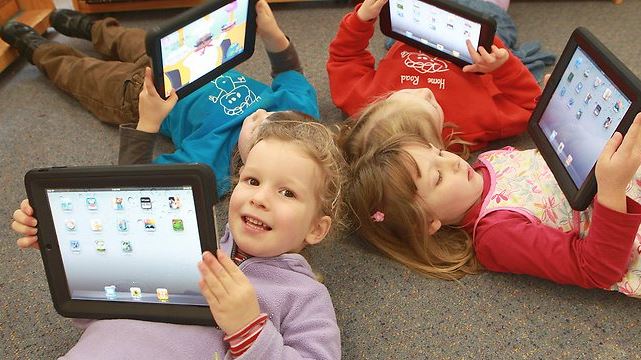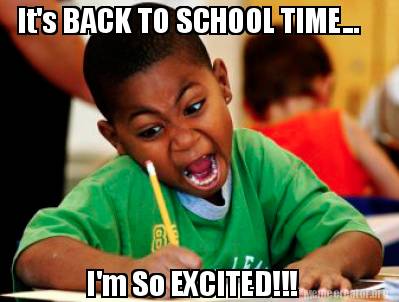
“Kids, how do you use this darn computer?!”
For the literacy narrative assignment, I interviewed my mom. She is 45 years old, (or 45 years young, as she would probably appreciate me to say), and I was interested in learning about how she feels about today’s literacy. I also loved learning about her own literacy practices when she was growing up and when she was my age. The quote that intrigued me that I got in the interview with my mom was when she said, “It makes me sad this generation of kids will never know how to look up a book in the card catalog at the library, and then go find it. As a parent of teenagers, I have to find my kids to help me with certain things on the computer today. Computers are not going away and it is important for the younger and older generation to keep up with the times, but I also feel computers should not replace the learning experience I had and even my own kids have had.”
This quote really got me thinking. Because for starters, I really have no idea what a card catalog is, let alone do I ever really go to the library to use the books, since mostly all information I could possibly need is found online. I am certain that I have no idea how I would find a book at the library, without assistance, if I needed it. Twenty years ago college students like ourselves heavily depended on that “technology” to get through their classes, where today it is an ancient practice of literacy that really isn’t even practiced.
My mom always needs help when it comes to technology. Sometimes she makes me help her with simple things on Facebook. To us, these practices come as second nature, but to people of past generations who didn’t grow up with it, it is a foreign and difficult concept. I am usually shocked that she has trouble figuring out ideas that I find to be so simple, but then again, she is baffled that I wouldn’t be able to find a library book using a card catalog.
The last idea of the quote that intrigued me was “I also feel computers should not replace the learning experience I had and even my own kids have had.” The changes in how we learn and the advances in technology have been unthinkable in the last 10 years. The education that I received prior to college is certainly different from what a child the same ages I was would receive now. My education barely required the use of technology (besides typing papers) until I got to college. I remember being so excited to be an honors sixth grader, because we were the only class that had access to using laptops- now, that would be a necessity and a given that computers would be used in the classroom. The thought of not only the literacy behind reading and writing practices, but the way we use technology, really got me thinking.



 Website:
Website: